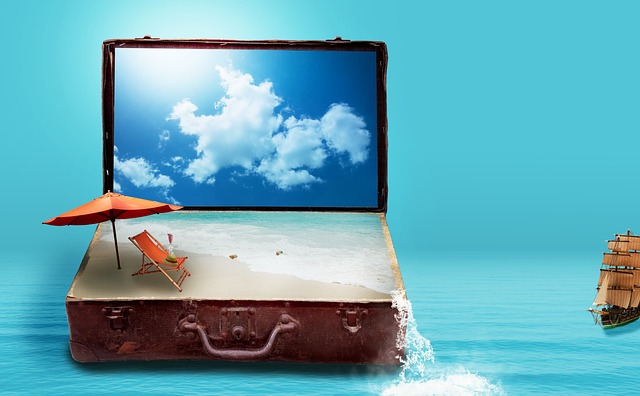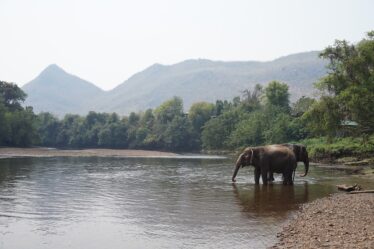
Embarking on a road trip is one of the most exciting ways to explore new destinations and experience the freedom of the open road. Whether you’re planning a cross-country adventure or a weekend getaway, being prepared is key to ensuring your journey is smooth, safe, and enjoyable. From packing the right gear to planning your route, here’s a comprehensive guide to road trip essentials that will help you make the most of your adventure.
1. Vehicle Preparation
Before hitting the road, it’s crucial to ensure your vehicle is in top condition. This will not only enhance your safety but also prevent any unexpected breakdowns that could disrupt your trip.
- Vehicle Inspection: Have your car inspected by a professional mechanic to check the brakes, tires, fluid levels, lights, and battery. Ensure the oil has been recently changed, and the tires are properly inflated and have sufficient tread.
- Spare Tire & Tools: Make sure you have a properly inflated spare tire, along with the necessary tools such as a jack, lug wrench, and tire gauge. Knowing how to change a tire is also essential.
- Emergency Kit: An emergency kit should include jumper cables, a flashlight with extra batteries, a first-aid kit, roadside flares or reflective triangles, a multi-tool, and duct tape. These items can be lifesavers in case of an emergency.
- Car Manual & Insurance Information: Keep your car manual, registration, and insurance documents easily accessible. Consider adding roadside assistance coverage if you don’t already have it.
2. Navigation and Planning
Having a well-planned route and reliable navigation tools is key to a successful road trip.
- GPS Device or Smartphone App: While smartphones are great for navigation, having a dedicated GPS device can be a good backup in areas with poor cell service. Popular apps like Google Maps and Waze offer real-time traffic updates and alternative routes.
- Physical Maps: Despite the digital age, physical maps are invaluable for areas with no signal or battery life issues. They also provide a broader view of your route, helping with overall trip planning.
- Pre-Planned Itinerary: Outline your route, including planned stops, accommodation, and points of interest. Flexibility is important, but having a general plan helps ensure you don’t miss any must-see attractions.
- Weather Check: Regularly check the weather forecast for your route and destination. This helps in preparing for changing conditions and packing the appropriate gear.
3. Comfort and Entertainment
Long hours on the road can be tiring, so making your vehicle a comfortable and entertaining space is essential.
- Comfortable Seating: Bring along seat cushions, neck pillows, and blankets to make the drive more comfortable. Adjust your seat and steering wheel to a position that supports good posture.
- Audio Entertainment: Download your favorite playlists, podcasts, or audiobooks. Streaming services like Spotify, Audible, and Apple Music are great, but downloading content for offline use ensures you won’t run out of entertainment in areas without service.
- Games and Activities: Keep passengers entertained with road trip games, cards, or travel-sized board games. For families, consider bringing along tablets or portable DVD players for movies.
- Snacks and Drinks: Pack a cooler with a variety of snacks and drinks to keep everyone satisfied between stops. Healthy options like fruit, nuts, and sandwiches are ideal, along with plenty of water to stay hydrated.
4. Safety and Health
Safety is paramount on a road trip, and having the right health and safety essentials can make all the difference.
- First-Aid Kit: A well-stocked first-aid kit should include bandages, antiseptic wipes, pain relievers, allergy medication, and any personal prescription medications.
- Sanitation Supplies: Keep hand sanitizer, wet wipes, and tissues on hand. With COVID-19, masks and disinfectant sprays are also important for stopping at public places.
- Sun Protection: Sunglasses, sunscreen, and a hat are crucial for daytime driving, especially during summer or in sunny climates.
- Bug Spray: In certain areas, especially around lakes and forests, bugs can be a nuisance. Bug spray will help you avoid bites and discomfort.
5. Essential Documents and Cash
Having the necessary documents and funds ensures that you’re prepared for anything that might come your way.
- Driver’s License and ID: Always carry your driver’s license and a secondary form of ID, such as a passport, especially if crossing borders.
- Vehicle Documents: Keep your car registration, insurance details, and any roadside assistance memberships handy.
- Credit Cards and Cash: While credit cards are widely accepted, some places may require cash. It’s wise to have some local currency for tolls, tips, or small purchases.
- Travel Insurance: Consider purchasing travel insurance that covers road trips. This can provide peace of mind in case of accidents, breakdowns, or medical emergencies.
6. Packing Essentials
Packing smartly ensures you have everything you need without overloading your vehicle.
- Luggage: Use soft-sided luggage or duffel bags that are easy to fit in the trunk. Pack efficiently by rolling clothes and using packing cubes.
- Clothing: Pack for the climate and activities you’ll be doing. Layers are key for varying temperatures. Don’t forget comfortable shoes for driving and exploring.
- Toiletries: Bring travel-sized toiletries, a towel, and any personal hygiene items. A toiletry bag with compartments helps keep everything organized.
- Camping Gear: If you plan on camping, don’t forget a tent, sleeping bags, portable stove, and cooking utensils. Ensure you have a reliable way to store food safely to avoid attracting wildlife.
7. Food and Drink Preparation
While stopping at local diners and restaurants is part of the fun, having your own food and drink supplies is also important.
- Portable Cooler: A cooler keeps your drinks and perishable food items fresh. Consider one that can be plugged into your car for extended freshness.
- Reusable Water Bottles: Staying hydrated is crucial, especially on long drives. Reusable bottles are eco-friendly and can be refilled along the way.
- Portable Coffee Maker: For coffee lovers, a portable coffee maker or French press is a road trip luxury. Don’t forget your favorite coffee grounds or pods.
- Utensils and Reusable Containers: Pack reusable utensils, plates, and containers to minimize waste and make picnic stops easier.
8. Sleeping Arrangements
Whether you’re planning to camp, stay in hotels, or sleep in your car, having the right gear is essential.
- Tent or Sleeping Bags: If camping, bring a sturdy tent and sleeping bags rated for the expected temperatures. An inflatable mattress or sleeping pad adds extra comfort.
- Car Sleeping Setup: For those sleeping in their car, consider a car mattress or reclining seat covers designed for sleeping. Window shades provide privacy and block out light.
- Portable Power Source: A portable power bank or solar charger ensures your devices stay charged, especially if camping off the grid.
9. Pet Essentials (if applicable)
Bringing your furry friend along? Make sure they’re comfortable and safe too.
- Pet Restraints: Use a pet seat belt, harness, or travel crate to keep your pet secure while driving.
- Pet Food and Water: Pack enough food for the duration of the trip, along with a portable water bowl and some treats.
- Pet Comfort Items: Bring along your pet’s bed, favorite toys, and a blanket to keep them comfortable and reduce anxiety during the trip.
- Pet First-Aid Kit: A first-aid kit tailored for pets can be a lifesaver. Include items like tweezers for tick removal, bandages, and pet-safe antiseptics.
10. Miscellaneous Essentials
These additional items can enhance your road trip experience and prepare you for unexpected situations.
- Multi-Tool or Swiss Army Knife: This versatile tool can handle a variety of tasks, from cutting rope to opening cans.
- Camera: Capture the beautiful moments of your journey with a camera or smartphone. Don’t forget extra batteries or chargers.
- Binoculars: Great for spotting wildlife or taking in distant landscapes.
- Blanket or Travel Pillow: Useful for comfort during the drive or for impromptu picnics and naps.
- Reusable Bags: Handy for storing trash, organizing gear, or carrying items during stops.
Conclusion
A well-prepared road trip can turn into the adventure of a lifetime. By ensuring you have these essentials, you’re setting yourself up for a safe, comfortable, and enjoyable journey. Whether it’s a solo escape, a family vacation, or a romantic getaway, the key to a successful road trip lies in the planning. So, pack your bags, map out your route, and get ready to hit the road with confidence, knowing that you’re fully prepared for whatever comes your way.


